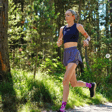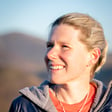
Andrea | The Alphabet Challenge
In this podcast episode Michelle speaks with UKRunChat community member Andrea who is embarking on an Alphabet Challenge.
The challenge started by combining travelling with running. As someone with a passion for adventure, nature and travel, it became apparent how engaging and motivating it was to combine adventure with running. Whilst it's not a new concept to run for a purpose - the tradition of going travelling in search of new things that we might lack is quite a historical concept from our ancestors. One of the most consoling aspects of travel is that we are likely to encounter nature in a way we don't see every day. The idea of running through the alphabet meant that even if it's not far from home, it's already a journey and allows us the freedom from everyday stuff.
Andrea started this challenge in Athens which makes complete sense as It's the birthplace of running and where marathon running began. Enjoy this episode andd hearing all about Andreas challenge.
You can follow Andreas adventures on Instagram



















